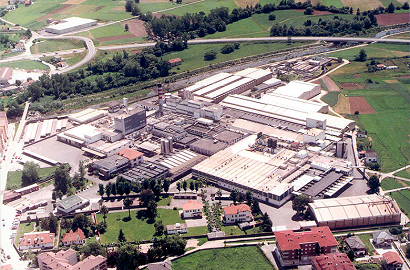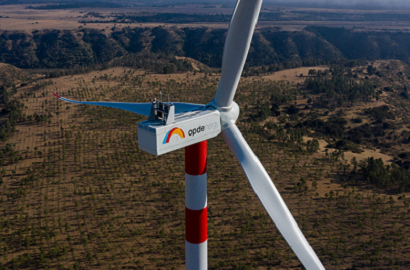
| Spain, leader in initiatives of renewable energies
|
||||
 |
|
|||
 |
|
|||

|
Spanish companies at the vanguard of sustainability |
||||
· Dow Jones Sustainability Index (DJSI) World |
|||||
 |
 |
 |
|||
The Dow Jones index highlights Indra's ambition when defining commitments, its capacity for innovation and the development of technological solutions with a positive impact on the planet. This analysis highlights that Indra has placed sustainability at the center of its entire strategy, in a process in which all levels have been involved, from the board of directors to the rest of the professionals. |
The 2021 Dow Jones Sustainability Index (DJSI) has placed ACCIONA among the electric utilities with the best environmental, social and corporate governance (ESG) practices in the world as a member of DJSI Europe, according to the new selective indices just released by the S&P Dow Jones Index. |
Telefónica obtained a score of 86 (out of 100) in the S&P - Dow Jones Sustainability Index (DJSI) 2021, making it a leading telco in commitment to the planet (environmental policy and management, climate strategy, eco-efficiency and reporting) by obtain the best score in the environmental dimension of the index. |
|||
Spain is the first country in the EU to adapt national plans to bring an end to climate change, according to the report entitled Planning for Net Zero Emissions 2019 by the European Climate Foundation.
The challenge of sustainable development
for companies
By incorporating sustainability into their business strategies and transforming challenges into new business opportunities, companies are becoming key players in sustainable development and in achieving the 2030 Agenda. In 2020, the Global Compact Network Spain was once again ranked as the largest local network worldwide by number of associate members.
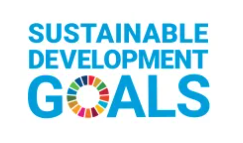
In 2015, the United Nations approved the 2030 Agenda and 17 Sustainable Development Goals (SDG). Sustainable development of the planet is now understood to be a global challenge that requires coordinated efforts from every social sphere.
The 2030 Agenda is a call to action for companies to achieve the SDGs, and it is currently the national and international standard for guiding companies towards sustainable development.
ICEX Spain Trade and Investment joined the Global Compact Network Spain in 2017 to promote sustainability as a measure for business competitiveness, and a tool for international expansion and attracting investment, while encouraging and highlighting the work Spanish companies are doing to achieve the goals laid out in the 2030 Agenda.
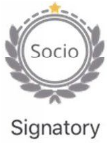
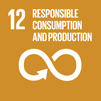
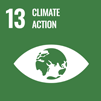

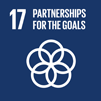
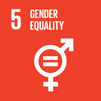
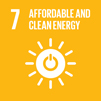
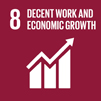
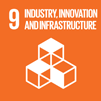
The Global Compact has a mandate from the UN to promote Sustainable Development Goals (SDG) in the private sector: Companies can take part in the initiative to advance their sustainability strategies and position themselves as key companies in terms of their contribution to the SDGs, highlighting their commitment through sustainability reports.
Sustainability,
a growing market
According to the Business and Sustainable Development Commission’s “Better Business, Better World” report, sustainable business models based on the 2030 Agenda will potentially open up market opportunities worth at least USD 12 trillion and create up to 380 million jobs by 2030.
There is a direct relationship between sustainability and profitability, which is why investing criteria increasingly include sustainability. This funding, traditionally official development assistance, currently includes both public and private financial resources aimed at achieving the SDGs.
The sustainability market offers a wide range of business opportunities, as there are currently more and more tools designed to foster the positive relationship between risk, profitability, and social and environmental impacts.
According to the Global Impact Investing Network Report 2019, managers of high-impact investment funds acknowledge that they have as much as USD 239 billion in total assets with a positive social or environmental effect.
Funding the SDGs:
TOSSD – TOTAL OFFICIAL SUPPORT FOR SUSTAINABLE DEVELOPMENT.
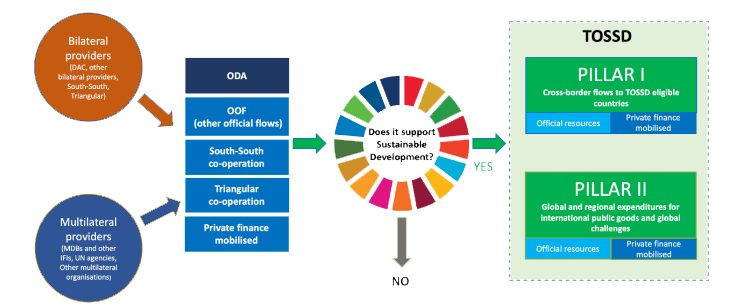 Source: http://www.oecd.org/dac/tossd/
Source: http://www.oecd.org/dac/tossd/
In addition to liquidity, profitability, and risk, socially responsible investors incorporate environmental, social, and corporate governance criteria (ESG) in their decision making. ESG investments have almost doubled in recent years.
Why invest
in sustainable development?
Socially responsible investment
Socially responsible investors are those who, in addition to liquidity, profitability and risk, incorporate environmental, social and corporate governance criteria (ESG: environmental, social and governance factors) in their decision making. Investments with ESG criteria have almost doubled in recent years.
Impact investing is just one example of socially responsible investing in which the social or environmental benefit is an essential driver of the business model. According to data from the non-profit organization Global Impact Investing Network, this trend captured resources amounting to USD 228.1 billion in 2017, twice as much as the previous year, a trend that has continued growing.
Access to new markets
New market segments are being developed that will be key to the economy of the future, such as new technologies, the circular economy, inclusive businesses, renewable energy, and ecological economics. In fact, it is estimated that these opportunities may generate up to USD 12 billion through to 2030.
Business with large corporations
Multinationals are at the forefront of sustainability measures in their business plans (66% of companies in the IBEX 35 already assess their suppliers based on social criteria and 71% on environmental criteria, according to a Global Compact Network Spain study ). Partnerships with multinationals afford SMEs and startups the possibility of offering innovative solutions that help achieve SDGs.
Cost savings
A significant portion of corporate sustainability initiatives are aimed at cutting costs in the production and distribution chain. According to a survey from Cox Conserves of 2,500 SMEs around the world, 67% of companies have implemented CSR actions as a way of improving cost management.
Public sector contracts
Law 9/2017 of 8 November on Public Sector Contracts has introduced award criteria including sustainability and environmental and social aspects related to the contracts. Companies that have implemented measures in these areas are better positioned to win public procurement contracts with the Spanish Government.
In addition, The Green Public Procurement Plan (2018-2025) covers public procurement of goods, works and services by central government, its autonomous bodies and social security management bodies, with the least possible environmental impact. The plan aims to promote the Spanish Circular Economy Strategy.
Public institutions in Spain and the EU are committed to the 2030 Agenda and acknowledge their role to enact the appropriate legislation to achieve SDGs. Being prepared to take on these forthcoming obligations will help companies position themselves at the forefront of sustainability.
What business opportunities
does Spain offer?
Spain is ranked 14th in the 2019 Europe Sustainable Development Report, but has shown positive progress, so we can expect to see an improved ranking in the medium term.
Thanks to Spain’s work in promoting Renewable Energy and Water and Sanitation access and management, Spain’s best performance indicators as a country are in SDG 6 (water and sanitation) and SDG 7 (affordable and non-polluting energy).
According to The World of Organic Agriculture, a report published by the Research Institute of Organic Agriculture (FiBL), Spain ranks fourth worldwide and first in the EU in agriculture, with the largest organic agricultural area.
Mobility is another major industry that offers potential opportunities. Spain has substantial investment opportunities in mobility solutions. According to the Sustainable Cities Index published by Arcadis, and closely aligned to the UN SDG criteria, two Spanish cities rank among the top 30 sustainable cities: Madrid (21) and Barcelona (28). These and other Spanish cities aim to effectively implement low-carbon infrastructure projects that improve the well-being of both their citizens and visitors.
Spain, a world leader in tourism competitiveness for the third consecutive year (World Economic Forum), has launched its 2030 Sustainable Tourism Strategy, which will allow it to maintain its global leadership.
Digitalization is a key lever in achieving the SDGs. Spain’s ICT industry is a leader in digital public services, ranking fourth in the EU in this area according to the Desi Index 2019. COVID-19 has also highlighted Spanish startups’ remote working solutions.
Sustainability legislation in Spain
The main sustainability regulations applicable to companies operating in Spain are:
Non-financial Information and Diversity Law
The Non-financial Information and Diversity Law (Law 11/2018) came into effect on 29 December 2018 as a result of the definitive transposition of the European Directive of 2014. Spain has adopted this regulation with important extensions in terms of the companies to which it applies, the data that needs to be published and other format requirements that the Directive left as optional or merely recommended. The Law includes the Sustainable Development Goals, the United Nations Global Compact, and the Paris Agreement as frameworks to be used by organizations as a guideline when preparing their non-financial reports.
Corporate Enterprises Law
The approval of the Non-financial Information Law entailed the modification of the Corporate Enterprises Law in order to develop diversity policies at companies that improve the presence of women on their boards of directors.
Public Sector Contracts Law
The Europe 2020 strategy, which aims to achieve intelligent, sustainable, and inclusive growth, has given rise to a variety of initiatives to involve the public sector in business practices. In Spain, Law 9/2017 of 8 November on Public Sector Contracts contemplates the mandatory incorporation of new social and environmental criteria across the board in numerous areas of the public procurement process.
Equality Law
Royal Decree–Law 6/2019, in force since 8 March, modifies Organic Law 3/2007 of 22 March on equality and includes companies with over 50 workers in the obligation to implement an equality plan.
Future Law on Climate Change
The private sector plays a leading role in the fight against climate change and must establish strategies to reduce its CO2 emissions into the atmosphere and promote renewable energies as opposed to fossil fuels in its activities, or invest in R&D&I to develop more sustainable and less emission-intensive technology innovations. The drive to approve legislation on climate change has been underway since 2011, and the preliminary draft bill of the Law on Climate Change and Ecological Transition was finally published in February 2019.
Draft National Plan for Adaptation to Climate Change (PNACC) 2021-2030
For increased resilience to the impact of climate change. The primary aim of this tool is to make the economy and society less vulnerable, safer and more resilient to the impact of climate change. For the first time, the PNACC will include a system of impact indicators within its framework for monitoring adaptation to climate change and the periodic compiling of risk reports.

Content developed in collaboration with Global Compact Network Spain




